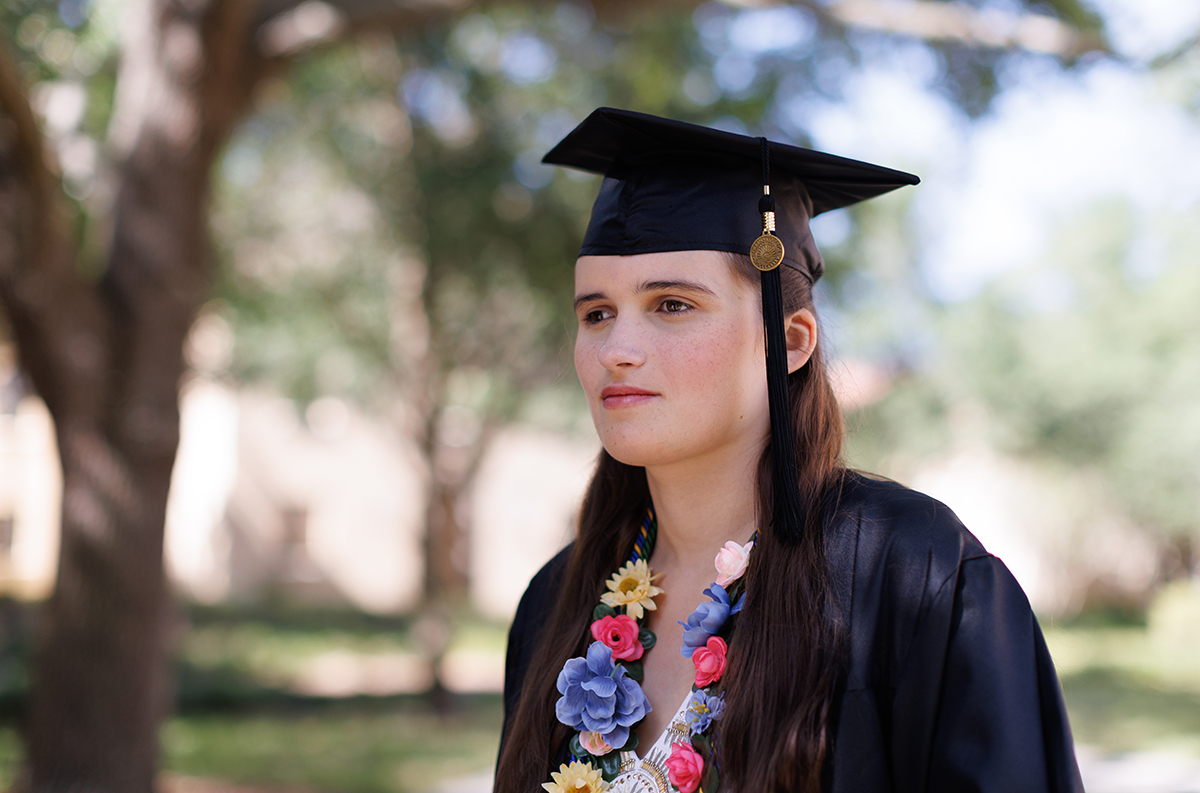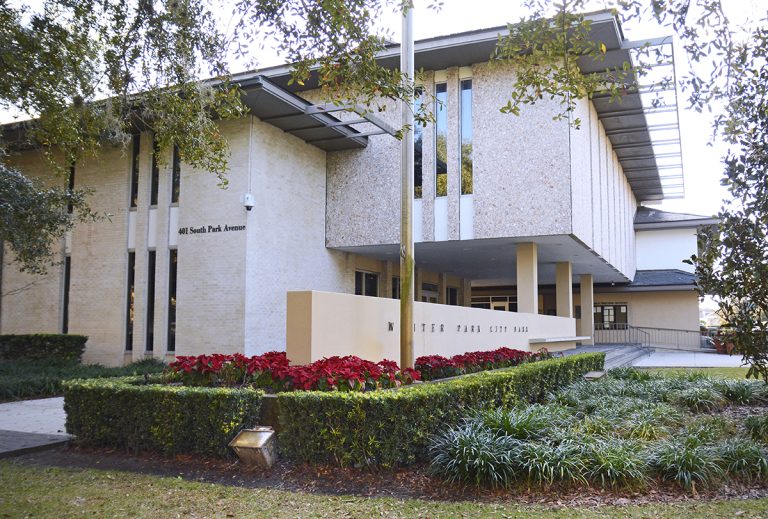Elizabeth Bonker is one of the 529 students who make up Rollins’ College of Liberal Arts Class of 2022, but millions will benefit from her example.
She is a published author, graduated at the top of her class, and founded a nonprofit. Yet she cannot say a word.
Bonker was diagnosed with autism after she suddenly stopped speaking at 15 months. She would eventually find her voice by developing her motor skills and learning to use a keyboard.
After being released from what she refers to as a silent cage, Bonker used poetry to express the struggle of living without the ability to communicate. At age 14 she published her book, “I Am in Here – the Journey of a Child with Autism Who Cannot Speak but Finds her Voice.”
“Every non-speaking person who learns to type is released from a silent cage,” Bonker told the32789 in an email. “I wrote a song about it. You go from desperation to having a connection to the world with communication. My friend Alex learned to type just two years ago at age 23, and now he is going to college as a global scholar. Alex and I are not special. I believe all non-speakers with autism can learn to type. Every soul saved inspires me.”

Her senior thesis focused on the difficulties that non-speakers with autism face in the public school system as they seek the right to communicate through typing. According to Dr. Rachel Newcomb, chair of Rollins College Department of Anthropology, Bonker’s work included researching the strategies of civil rights activists and advocates for the disabled. “It not only involved her making a compelling argument for this form of communication, but also created a roadmap for her nonprofit and for the activism involved in helping others to gain this educational right,” Newcomb said.
Bonker recently launched Communication 4 ALL with the goal of ensuring access to communication for all non-speakers with autism. The nonprofit is also working to dispel the misconception that the inability to speak results from an intellectual disability. According to communication4all.org, complex sensory-motor challenges are what prevent communication in people with autism. Bonker tries to live the example that, with training and support, non-speakers can unlock their voices and take control of their lives.
“My life mission is Communication 4 ALL,” Bonker said. “We will continue to change the way the world sees non-speaking autism by every means possible. We just released the first two songs of an advocacy album and are going on a 20-city tour. We will also reach families through social media with our partners, including the International Association for Spelling as Communication and Autism Society of America. Our goal is for every non-speaking student to have communication in school just as deaf students have sign language. With typing, non-speaking students can be educated and productive members of their communities.”
Bonker received her degree in social innovation as one of five valedictorians in her class, and was unanimously voted to give the commencement speech on Sunday, May 8. She used a text-to-speech program to address the audience, but the message came from years of struggle and triumph.
“Whatever our life choices, each and every one of us can live a life of service to our families, to our communities, and to the world,” she said in her speech.
“God gave you a voice. Use it. And no, the irony of a non-speaking autistic encouraging you to use your voice is not lost on me. Because if you can see the worth in me, then you can see the worth in everyone you meet.”



